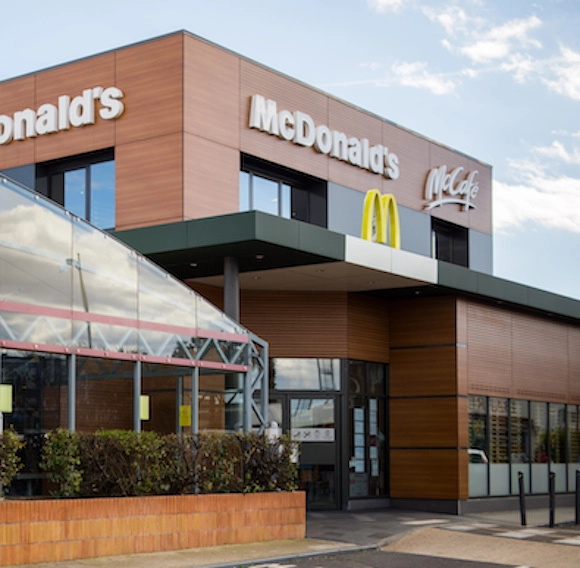McDonald’s is launching ultra-fast charging of electric cars in France, with ‘high power and an affordable cost’. It is promising one of the most competitive power/price ratios on the market. Enough power to recharge your electric car in around 20 minutes in the parking lot of the American fast-food chain
McDonald’s will install electrical charging stations at its restaurants across France so that its customers can recharge their EVs while they eat. They will be in every McDonld’s fast-food parking lot by 2025
The fast-food giant plans to install nearly 2,000 ultra-fast charging stations promising ultra-fast charging with 80% recharge in just 20 minutes.
“We take advantage of the time we go to eat to recharge the car,” one driver told France TV on the day the first McDonald’s charging station opened. However, for the moment, these terminals only represent 8% of the 110,000 charging points in France. This figure has been increasing in recent years. Until 2020, just 4,000 charging points were installed each year, compared to 28,000 in 2022. The Macron government has set itself a target of 400,000 charging points by 2030.
The deployment of these ultra-fast charging stations in McDonald’s got underway today (Tuesday, November 21) with the first station at the restaurant and drive-thru in Noisy-le-Grand, in the Paris suburbs. McDonald’s strategy has already been adopted in other European countries including Italy, the United Kingdom and Sweden.
The burger giant wants 2,000 charging points by 2025 with its partner Izivia, a subsidiary of EDF. The fast food giant has actually announced that it will equip half of its car parks with charging stations, around 700 car parks, supplied by Delta and Ingeteam. The power is 150 to 200 kW, and delivering a voltage of 800 Volts, which will allow compatible cars to reach 80% autonomy in 20 minutes. Many French supermarkets offer charging points but with a paltry AC charging of only up to 22 kW.
“Time for a coffee break or something to eat“, emphasize in a press release McDonald’s, Izivia and the Siloé fund of Crédit Mutuel, which co-finances the operation.
“Each site will be equipped with one to three terminals. This will depend on the size of the car park and the needs, depending on attendance. To determine the number of terminals, we take into account the rate of equipment with electric cars in the region, the traffic flow, but also the presence or absence of other fast terminals around“, explained Christelle Vives, the general director of Izivia.
If the price was advertised as “attractive”, at Le Figaro is reported a price of around 35 cents per kWh. This is roughly the price Tesla is currently offering on its Superchargers. This remains significantly cheaper than most players on the market, such as Ionity and Fastned at 59 cents. Only Lidl and Iecharge do better with certain terminals at 25 cents for the first and 30 cents for the second.
In other words, recharging at 35 cents per kWh allows you to travel 100 km for less than 5 euros (US$5.44). It is therefore generally half the price of a full tank of diesel. For payment, you can rely on a bank card terminal, a recharge badge reader or a QR code for payment from a smartphone.





